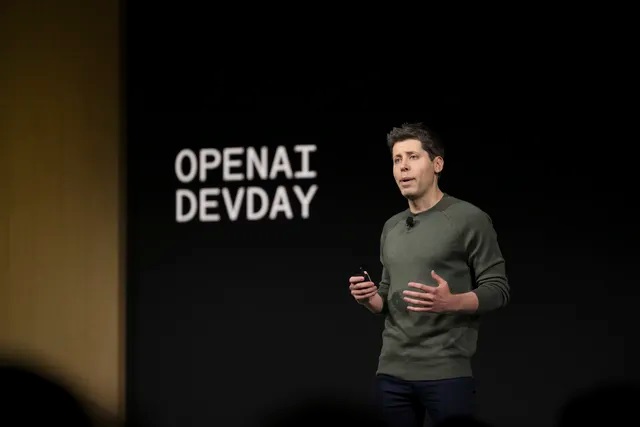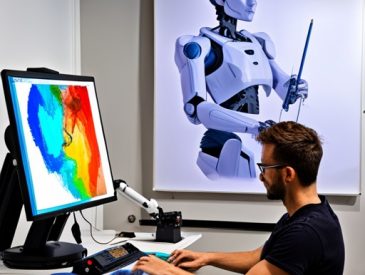The recent reinstatement of OpenAI CEO Sam Altman after his sudden dismissal has left many wondering about the true cause of the dramatic reversal. Speculation has run wild, with theories suggesting that the company may have been working on a highly advanced AI that triggered panic and ultimately led to Altman’s removal and reinstatement.
There have been whispers of a potentially game-changing breakthrough, known as Q* (pronounced “Q-star”), at OpenAI. This has stirred up a fair amount of speculation and unease. However, experts in the field of artificial intelligence suggest that this could simply be an effort to enhance the capabilities of ChatGPT, rather than a radical departure from established AI techniques.
Q* A Quest for Artificial General Intelligence
OpenAI has long been dedicated to the pursuit of artificial general intelligence (AGI), an algorithm capable of performing complex tasks as well as or better than humans. Altman himself has emphasized the company’s mission to use AGI for the benefit of humanity.
However, the progress made by OpenAI in achieving this ambitious goal remains a subject of debate. The company has been notoriously secretive about its research, making it difficult to discern recent developments.
The Emergence of Q* and Its Implications
Recent reports by Reuters and The Information shed light on a potential catalyst for the upheaval at OpenAI. The company had allegedly been working on a powerful new AI called Q*, which some viewed as a significant step towards AGI. Q* reportedly possessed the ability to solve grade school math problems, a skill that researchers consider a noteworthy milestone in AI development.
Mira Murati, a former OpenAI nonprofit board member who briefly served as CEO following Altman’s departure, confirmed the existence of Q* in an internal message to staff, according to Reuters.
However, concerns were raised about the commercialization of a product that was still not fully understood. The introduction of an AI algorithm capable of solving math problems required more advanced planning abilities, moving beyond simple word prediction. This would be a significant leap forward for AI, as it would involve logical reasoning and the ability to handle abstract concepts.
Leading AI researchers, including Yann LeCun, have acknowledged the importance of replacing token prediction with planning to improve AI reliability. Labs such as FAIR, DeepMind, and OpenAI have been actively exploring this area, with some already publishing their ideas and results.
Experts believe that if an AI can solve new, unseen problems rather than simply regurgitating existing knowledge, it would be a significant advancement. However, they remain skeptical about whether Q* represents a breakthrough that poses an existential threat.
“[OpenAI made] progress on Q*, which some internally believe could be a breakthrough in the startup’s search for superintelligence …
Though only performing math on the level of grade-school students, acing such tests made researchers very optimistic about Q*’s future success.”…
— Erik Brynjolfsson (@erikbryn) November 23, 2023
The Debate and Expert Opinions
While some researchers consider Q*’s ability to solve grade school math problems symbolically important, they caution against overhyping its practical implications.
Katie Collins, a highly accomplished PhD researcher at the University of Cambridge, has been making significant strides in the intersecting fields of mathematics and artificial intelligence. Her work primarily focuses on machine learning and its application to mathematical problem-solving.
Recently, Collins has weighed in on the ongoing discussion about Q*, the purported breakthrough from OpenAI. Given her expertise in math and AI, her perspective provides valuable insights into this complex topic.
According to Collins, the capabilities of Q* should be viewed with a measured perspective. While it represents an important development in the field of AI, she suggests that it is not yet at a stage where it can compete with the highest echelons of mathematical thought and innovation – as exemplified by recipients of the esteemed Fields Medal.
The Fields Medal, often referred to as the “Nobel Prize of Mathematics,” recognizes outstanding mathematical achievement for existing work and for the promise of future achievement. It is awarded every four years to up to four mathematicians under 40 years of age. The level of mathematical innovation, creativity, and depth required to earn a Fields Medal is immense.
In this context, Collins’ statement underscores that while AI models like Q* are becoming increasingly sophisticated, they still have a long way to go before they can match the problem-solving prowess and creative ingenuity of top-tier human mathematicians. It’s a reminder that even as we celebrate advancements in AI, we must also maintain a realistic understanding of their current limitations.
Gary Marcus, a renowned expert in the field of artificial intelligence and a vocal critic of deep learning, has shared his thoughts on the hype surrounding Q*. With a distinguished career, Marcus brings a wealth of experience and insight to the conversation.
In his view, much of the discourse about Q* amounts to what he terms as “wild extrapolation.” He cautions against getting swept up in the fervor and making inflated predictions about its capabilities or potential impact. This perspective is rooted in his broader critique of the AI field, where he has often called out instances of over-optimism and unwarranted hype.
Marcus likens the speculation around Q* to previous instances where the potential of AI has been overstated. He urges for a more grounded and realistic approach to assessing the capabilities of AI models. While acknowledging the advancements represented by technologies like Q*, he emphasizes that we are still far from achieving the lofty goals often associated with AI, such as human-level intelligence or universal problem-solving abilities.
Marcus’ viewpoint serves as a sobering reminder amidst the buzz about Q*. It underscores the need for careful evaluation and balanced perspectives when discussing advancements in AI. As we continue to push the boundaries of what AI can achieve, it’s crucial to also acknowledge the challenges and limitations that remain. See About that OpenAI “breakthrough”
Anyone think this has anything to do with the OpenAI drama?
Note the date. And see related NYT piece today, excerpt on right. pic.twitter.com/Ur4zbqz1n6
— Gary Marcus (@GaryMarcus) November 27, 2023
Subbarao Kambhampati, a distinguished professor at the School of Computing & AI at Arizona State University, has been deeply involved in the exploration of the reasoning limitations of Large Language Models (LLMs) like Q*. His research and insights shed light on the complexities and potential of these AI models.
Kambhampati hypothesizes that Q* could be leveraging vast quantities of synthetic data, in conjunction with reinforcement learning techniques, to train LLMs to perform specific tasks. For instance, Q* might be designed to tackle simple arithmetic problems.
Synthetic data, essentially computer-generated data that mimics real-world phenomena, provides a rich, diverse, and virtually unlimited source of training material for AI models. Pairing this with reinforcement learning, a type of machine learning where an agent learns to make decisions by taking actions in an environment to maximize some notion of cumulative reward, could potentially enhance the capabilities of LLMs.
However, Kambhampati cautions against overly optimistic expectations. While this approach might enable LLMs to master certain tasks, it doesn’t necessarily mean they will develop a universal problem-solving ability. In other words, just because an LLM can crack simple arithmetic, doesn’t guarantee it will be able to decipher and solve any conceivable mathematical puzzle.
This insight underscores the fact that while advancements in AI are impressive, there are inherent limitations and challenges that researchers need to acknowledge and address. The road to creating a truly reasoning AI is still long and filled with unknowns.
Unraveling the Full Q* Story
While Q* may have played a role in Sam Altman’s removal, it is likely that there were additional factors contributing to the shakeup at OpenAI. Internal disagreements over the company’s future direction are among the potential reasons behind Altman’s ousting.
The field of AI has often been marked by outlandish claims, fearmongering, and excessive hype. The buzz surrounding OpenAI’s rumored successor to its GPT-4 model falls within this pattern, with some researchers expressing optimism despite Q*’s limited capabilities in solving grade school math problems.
The true implications of Q* and its role in OpenAI’s quest for AGI remain uncertain. As the company continues to push the boundaries of AI research, only time will reveal the full extent of its advancements and the impact they may have on the future.
????OpenAI made a major technical breakthrough before Altman firing and we figured out what it is.
Meet Q* (Q star) & the method Ilya Sutskever developed to get over LLM limitations around training data.https://t.co/gHvDMDjCOj @jon_victor_ pic.twitter.com/pI6HoNQY7S
— Amir Efrati (@amir) November 22, 2023
References
- OpenAI’s Chaos Linked to Super Powerful New AI It Secretly Built
- These Clues Hint at the True Nature of OpenAI’s Shadowy Q* Project
- What is Q*? And when we will hear more?
- Unpacking the hype around OpenAI’s rumored new Q* model
- About that OpenAI “breakthrough”
Get ready to dive into a world of AI news, reviews, and tips at Wicked Sciences! If you’ve been searching the internet for the latest insights on artificial intelligence, look no further. We understand that staying up to date with the ever-evolving field of AI can be a challenge, but Wicked Science is here to make it easier. Our website is packed with captivating articles and informative content that will keep you informed about the latest trends, breakthroughs, and applications in the world of AI. Whether you’re a seasoned AI enthusiast or just starting your journey, Wicked Science is your go-to destination for all things AI. Discover more by visiting our website today and unlock a world of fascinating AI knowledge.





